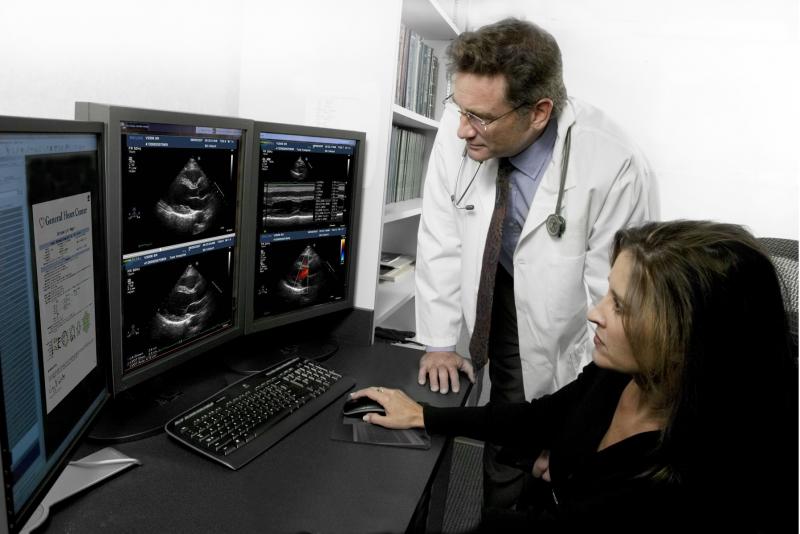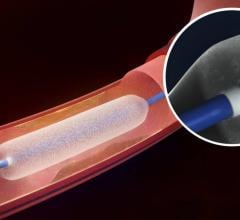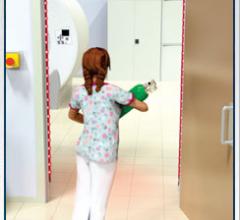C. R. Bard Inc. announced the presentation of the 12-month results from the Lutonix Global Real-World Registry at the Transcatheter Cardiovascular Therapeutics (TCT) 2015 meeting. These results come just months after publication in the New England Journal of Medicine of the one-year data from the Lutonix 035 drug coated balloon (DCB) catheter pivotal, randomized LEVANT 2 trial.
Tryton Medical Inc. announced results from the pivotal Tryton Confirmatory Study confirming the acceptable acute safety profile of the Tryton Side Branch Stent for the treatment of coronary bifurcation lesions in vessels appropriate for a ≥2.5mm stent. Results were presented as part of the Featured Clinical Research session at Transcatheter Cardiovascular Therapeutics (TCT), the annual scientific symposium of the Cardiovascular Research Foundation (CRF) being held in San Francisco, California.
On Oct. 7, 2015, Cook Medical initiated a voluntary recall for select sizes of Beacon Tip Angiographic Catheters. This recall includes all lots of these select sizes of the Beacon Tip Angiographic Catheters. This recall is an expansion of the voluntary lot-specific recall issued on July 2, 2015.
Cardiac PET/CT represents a major advancement in cardiovascular diagnostics, offering significant clinical and ...
AtriCure Inc. announced it has entered into a definitive merger agreement under which AtriCure has agreed to acquire nContact Inc., a privately held developer of innovative cardiac ablation solutions.
Boston Scientific Corp. announced it has closed on an additional round of financing with MValve Technologies Ltd., developer of a percutaneous mitral valve replacement system designed to work with the Boston Scientific Lotus Valve. Boston Scientific has provided the company with funding since 2012 and has an exclusive option to acquire MValve.
Kopp Development Inc. has released a new entryway system for magnetic resonance imaging (MRI) rooms — FerrAlert Halo II Plus. This detection system dramatically reduces alarm fatigue by not alarming on the MRI door and ferromagnetic objects exiting the MRI room. Alarm fatigue reduction is a top priority for ECRI and The Joint Commission.
SPONSORED CONTENT — Studycast is a comprehensive imaging workflow system that allows healthcare professionals to work ...
The Lancet published results online that show Abbott’s ARCHITECT STAT High Sensitive Troponin-I (hsTnl) test may rule out myocardial infarction (MI) in two-thirds of very-low risk patients, allowing prompt discharge from A&E (Accident and Emergency). The study identified a precise new threshold of troponin of <5 ng/L which, together with other clinical factors, allows doctors to rule out heart attacks in the majority of patients, reducing prolonged waiting for monitoring with additional tests, unnecessary procedures and hospital admissions.
October 9, 2015 — Cardinal Health is launching its expanded portfolio in the cardiovascular space including the latest ...
Oregon Health & Science University (OHSU) now offers patients one of the most advanced computed tomography (CT) imaging systems available with the installation of Toshiba’s Aquilion ONE ViSION Edition. OHSU, a nationally prominent research university and Oregon’s only public academic medical center, acquired the new system to help improve its diagnostic capabilities for trauma, cardiac, stroke and pediatric patients. Adding the first 640-slice system in the state of Oregon allows OHSU to deliver better patient care and maintain its position as one of the leading health care institutions in the United States.
Providing exceptional cardiovascular care for patients to achieve the best possible outcomes is the number one goal for ...

Cardiovascular information systems (CVIS or cardiac PACS) have undergone a transformation over the past few years to ...
Shimadzu Medical Systems USA announced the availability of the MIX package for the Trinias Cardiovascular suites. Based on the three main operating concepts (SCORE Imaging, SMART Design and SMILE Concept) for Trinias, Shimadzu is providing new features for taking minimally invasive procedures to new levels.
Personal MedSystems introduced the first and only 22-lead mobile electrocardiogram (ECG) system, CardioSecur, at the European Society of Cardiology Congress 2015, Aug. 29-Sept. 2 in London.
Cardiac positron emission tomography (PET) is growing in popularity among cardiologists because it provides the ability ...
Invitae Corp., a genetic information company, announced the expansion of its cardiology offering, including more than 30 cardiovascular test panels for arrhythmias, cardiomyopathies, aortopathies, familial hypercholesterolemia, pulmonary hypertension and congenital heart disease.

The Centers for Medicare and Medicaid Services (CMS) released the final version of Stage 3 Meaningful Use (MU) requirements related to healthcare information technology (IT) Oct. 6. CMS will take public comment on the new rules for 60 days beginning Oct. 16.

The results of a research study indicate that interventional cardiologists receive “very high” radiation exposure levels to the left side of the head specifically when performing fluoroscopically guided invasive cardiovascular (CV) procedures. Even with modern imaging equipment and shielding, a significant exposure difference was seen between the two sides of the head.


 October 15, 2015
October 15, 2015











